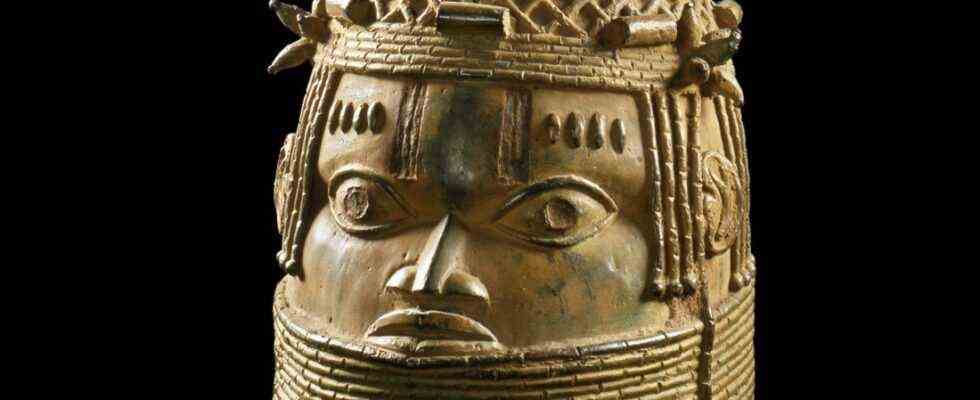It was as if the Prussian Cultural Heritage Foundation (SPK) wanted to demonstrate once more why its reform is so urgent: Two topics were on the agenda when the SPK Foundation Council met on Tuesday: the return of the Benin bronzes and the renovation of your own institution. Vages was passed on both questions.
How many of the around 500 bronzes from the collection of the Ethnological Museum in Berlin will go to Nigeria and under what conditions will only be decided at the next meeting. For the time being, only the willingness to return was decided, and the foundation president Hermann Parzinger authorized to negotiate with the responsible authorities in Nigeria. But representatives of the Federal Foreign Office have been conducting these negotiations for months.
There was also little concrete information about the reform of the SPK. The Science Council called the foundation “dysfunctional” in a report a year ago. After two years of evaluation, he had not diagnosed an urgent need for reform, but rather an inability to reform. The most important recommendation was to do away with the confusing conglomerate, which includes the largest Berlin museums as well as the State Library, the Secret State Archives and various institutes, and to divide it up into smaller, autonomous units. But the idea only lived until someone had found the word “smashing” for it, and until someone else even linked this alleged “smashing” of the Prussian Foundation with the overthrow of monuments.
The President should continue to have the last word
It is therefore not surprising that after a year of internal debates, the Board of Trustees has now decided on a reform concept in which there is just as little mention of splitting up as there is of giving the foundation a different name. Instead of the radical steps demanded by the Science Council, they essentially limit themselves to two measures: In the future, a “collegial body” is to lead the SPK, in which representatives from the individual houses sit. The General Directorate of the State Museums headed by Michael Eissenhauer, a hierarchy level between the head office headed by Hermann Parzinger and the individual museums, which has been criticized for years as inhibiting, will be abolished.
But anyone who imagines the collegiate body as a kind of democratic leadership collective is mistaken. The office of President, Hermann Parzinger, will not be touched. Although he will have to coordinate with the representatives of the Houses, as chairman of the collegiate body he should still have the last word. While these should only belong to the new body for a limited period, it will remain there for the long term; and while they do the office alongside their actual work, Parzinger remains full-time president.
So far, the structure that has now been decided upon is little more than a sketch on a paper napkin. The crucial questions are still “checked”: Can the houses finally decide for themselves about staff and budget? How far does the president’s power extend? Should the museums join forces in “clusters” or be completely autonomous?
The number of country representatives in the Council will be reduced, instead there will be expert seats
Most of the other resolutions of the Board of Trustees are appeals that have been heard for years: The foundation should offer “real added value”, in other words: be greater than the sum of its parts. More interdisciplinary work is required, but on the other hand the institutions should develop their own stronger profiles and “address their audiences in a more targeted manner”.
The composition of the Board of Trustees is also expected to change in the future. So far all federal states have been represented there. Because their financial contributions have shrunk to tiny sums in the last few decades, the number of country representatives is being reduced. Their seats are to be taken by experts who come neither from politics nor from the institutions.
In nominal terms, Minister of State for Culture Monika Grütters was just able to tick off this major project before the end of the legislative period. However, the content as well as the personnel changes are missing. With the current resolutions, improvements at the SPK are hardly to be expected.

